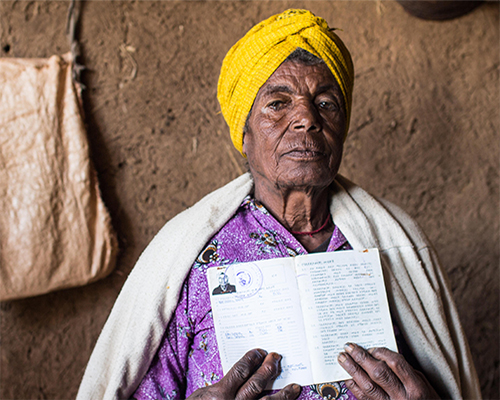Impact Evaluation of USAID’s Ethiopia Land Tenure Administration Program and Ethiopia Land Administration Program
ELAP_ELTAP_IE
Global Development

In Ethiopia, The Cloudburst Group has designed and is implementing a Difference-in-Difference impact evaluation of USAID’s Ethiopia Land Tenure Administration Program (ELTAP) and the Ethiopia Land Administration Program (ELAP). The evaluation will measure the impact of second-level land certification activities that were conducted under ELTAP/ELAP and the impacts these activities had on rural households. The impact evaluation will address questions that include: does the added expense of second-level land certification provide additional tenure security benefits of equal or greater value compared with first-level certification; how are second-level certificates being used and for what; how do recipients perceive the value of certificates; and, how has intra- household welfare been affected by second-level certification?
The impact evaluation will test a number of research hypotheses including if and how second-level certification affected household access to credit, land-related disputes, willingness to engage in rental markets, investment in productive assets, levels of agricultural productivity, investments in soil and water conservation, opportunities to engage in off-farm income generating activities, women’s involvement in land management and decision making and perceptions of tenure security. In addition to generating results on the average impact across the entire sample, we will also disaggregate data to identify disparate impacts based on gender, economic status and other categories.
The Cloudburst Group developed all impact evaluation instruments. These consist of a large-N household survey (~4,500 respondents) and includes a separate survey component for wives; a community survey; and a woreda land administration survey. Some aspects of the household and wives survey were modeled on the ELTAP and ELAP baseline survey instruments. All instruments were peer reviewed by external reviewers. Investigators are paying particular attention to the heterogeneity of impacts among particular subgroups and will be disaggregated on a number of factors. We are working with a local data collection firm to train enumerators and qualitative researchers to electronically gather data (using CSPro) and comply with human subjects’ research requirements.
Our external research partner in this Impact Evaluation is Cynthia Caron, PhD, Clark University.
